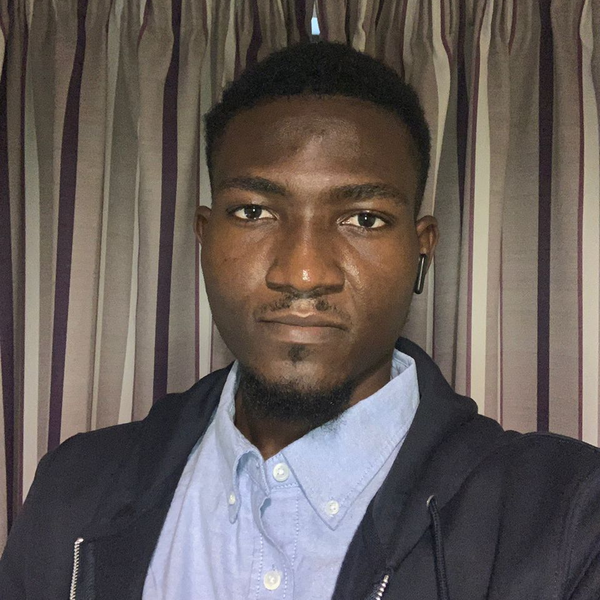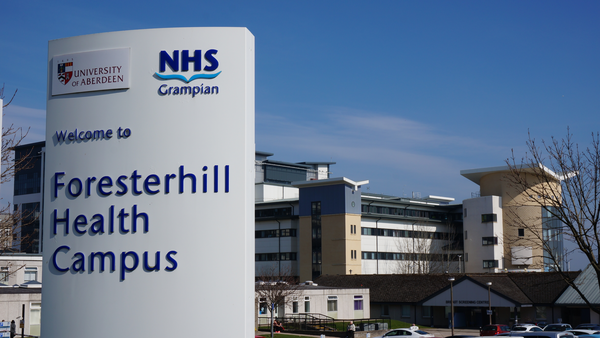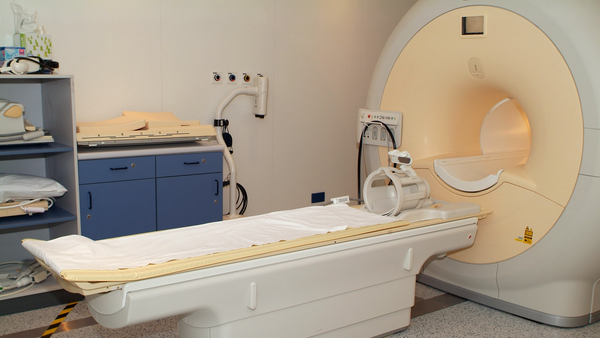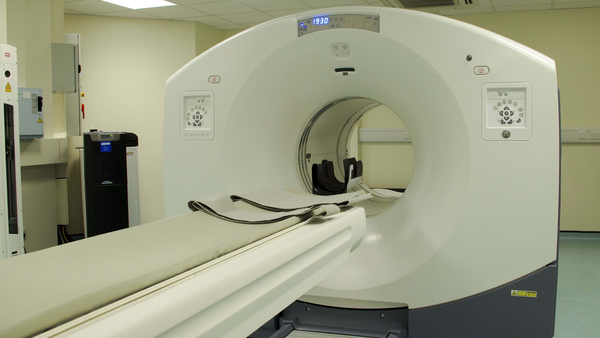Abdul Fatawu Dawuda

Our MSc in Medical Imaging will give you a deep understanding of how technology can help detect and study disease.
This programme is available to start in January or September. Apply now

The University of Aberdeen has an internationally renowned reputation for the development of new techniques for medical imaging, including being the first place in the world to build and use a whole body Magnetic Resonance Imaging (MRI) scanner.
The use of imaging techniques in medicine has been, and continues to be, an area of vast expansion. The specialities of this programme include the full range of medical imaging modalities, including Nuclear Medicine, Positron Emission Tomography (PET), MRI and Ultrasound. It is a classroom-based programme and while there are no clinical or work-based placements we do draw on the close working relationship between the University and the Hospital to improve your knowledge of how these technologies are used in both the modern clinical and research environments.
The University’s world class equipment and facilities will provide you with unrivalled insight into medical imaging. Gaining a degree from the University of Aberdeen, with its long history of delivering medical imaging programmes, will add significant credibility to your qualification.
This programme is available to start in September or January.
The Medical Imaging programme shares some courses with the Medical Physics programme (particularly the introductory courses in the first term), but it doesn’t include radiotherapy and goes more deeply into image processing and image analysis. We also offer extra modules on maths/physics for imaging, making this programme accessible to those with a life sciences background as well as those with a maths, physics or engineering background.
In the second term you’ll study a course in image processing and a comparative imaging course that aims to give you a complete understanding of the advantages and disadvantages of each modality. You will also take a course on the principles of systematic reviewing and will be able to choose one of the “deeper study” courses to gain a more thorough understanding of a modality of your choice.
In the third term you will conduct a systematic review on a topic of your choice. A systematic review is a scientific methodology that combines evidence from multiple sources that satisfy pre-determined eligibility conditions in order to answer a particular research question. This project will give you the opportunity to explore an area of interest in more depth and will also give you the skills that you need in order to start developing your own research projects in either a clinical, academic or industrial environment.
| Fee category | Cost |
|---|---|
| EU / International students | £23,000 |
| Tuition Fees for 2025/26 Academic Year | |
| UK | £11,100 |
| Tuition Fees for 2025/26 Academic Year Graduates of the University of Aberdeen are eligible for the Alumni Postgraduate Scholarship, which reduces the tuition fee to £7,000, in line with the current tuition fee loan amount offered by the Student Awards Agency Scotland (SAAS). Please see the following for full terms and conditions: https://www.abdn.ac.uk/study/funding/653 | |
We will endeavour to make all course options available. However, these may be subject to change - see our Student Terms and Conditions page.
All eligible self-funded international Postgraduate Masters students starting in September 2025 will receive an £8,000 scholarship. Learn more about this Aberdeen Global Scholarship here.
To see our full range of scholarships, visit our Funding Database.
Our Medical Imaging programme is taught using a combination of lectures, tutorials, workshops and practical classes. We employ a blended learning approach with all content (including recordings of any lectures) being available through our virtual learning environment, meaning you will have immediate access to lessons after they have been taught and can replay them online when required.
You will benefit from being able to learn outside the classroom in the university’s world class facilities, with some practical sessions also being conducted in the hospital on the same campus. You will also have access to the expertise of our staff, based in the School of Medicine, Medical Sciences and Nutrition and Foresterhill Health Campus.
Some of the teaching methods used in this programme include:
Much of the teaching on this course involves participatory research work. Students are expected to engage with research work as well as classroom teaching and independent study in their own time.
The programme is assessed by continuous assessment (including practical write-ups, essay assignments, online tests and student presentations), written examinations, assessment of the project work and the submission of a thesis.
The information below is provided as a guide only and does not guarantee entry to the University of Aberdeen.
A second-class honours degree in physical science or engineering.
The programme is also open to students with a Biological Sciences or Life Sciences background. Applicants from non-physical science or engineering backgrounds must be prepared to undertake training in maths and physics as part of the programme.
Please check the In My Country or Territory pages to find out if your degree is equivalent.
Academic Technology Approval Scheme (ATAS) certificate
The CAH3 code for this degree is CAH07-01-01. Students who need a visa to live or study in the UK must to apply for ATAS clearance. The ATAS clearance certificate must be valid when you apply for a visa to enter the UK. To find out if you need to apply for ATAS clearance, please visit http://www.gov.uk/guidance/academic-technology-approval-scheme
Please enter your country or territory to view relevant entry requirements.
To study for a Postgraduate Taught degree at the University of Aberdeen it is essential that you can speak, understand, read, and write English fluently. The minimum requirements for this degree are as follows:
IELTS Academic:
OVERALL - 6.5 with: Listening - 5.5; Reading - 6.0; Speaking - 5.5; Writing - 6.0
TOEFL iBT:
OVERALL - 90 with: Listening - 17; Reading - 21; Speaking - 20; Writing - 21
PTE Academic:
OVERALL - 62 with: Listening - 59; Reading - 59; Speaking - 59; Writing - 59
Cambridge English B2 First, C1 Advanced or C2 Proficiency:
OVERALL - 176 with: Listening - 162; Reading - 169; Speaking - 162; Writing - 169
Read more about specific English Language requirements here.
You will be required to supply the following documentation with your application as proof you meet the entry requirements of this degree programme. If you have not yet completed your current programme of study, then you can still apply and you can provide your Degree Certificate at a later date.
Eligible self-funded Postgraduate Taught (PGT) students will receive the Aberdeen Global Scholarship. Eligibility details and further information are available on our dedicated page.
Aberdeen Global ScholarshipBy studying an MSc in Medical imaging at the University of Aberdeen, you will have a solid grounding to pursue a career in healthcare and science. Although, it is not a vocational qualification (i.e. it doesn’t include any clinical or work-based placements) you will get a thorough grounding in the area and the skills required to pursue a number of different career paths. In short, you will develop expert knowledge and understanding of medical imaging techniques that will enable you to help advance the practice of medical procedures through medical imaging technology.
Graduates of this programme have gone on to work in hospitals alongside clinicians, providing scientific and technical expertise. Others have gone on to conduct research in universities, working as research assistants. Some graduates have also chosen to work in industry or to continue with their studies and complete a PhD in Medical Imaging.
Some of the career options include:
An MSc in Medical imaging from the University of Aberdeen will show employers that you have the knowledge and the practical experience of applying medical imaging techniques to real-world projects. The contacts that you make within the University and the Foresterhill Health Campus enhance the credibility of your degree and help establish your reputation as a contributor to essential research projects.
NHS Grampian
GE Healthcare
Philips Healthcare
Siemens Healthcare
The programme will be delivered by an experienced, multidisciplinary team of internationally renowned researchers and NHS staff.
You will be taught by a range of experts including professors, lecturers, teaching fellows and postgraduate tutors. However, these may be subject to change - see our Student Terms and Conditions page.

The Foresterhill Health Campus is one of the largest clinical complexes in Europe which includes the Medical School, large teaching hospital, the Institute of Medical Sciences and the Rowett Institute.

Our 3.0 T Philips Achieva research MRI scanner, is located in the Lilian Sutton Building (LSB) at Aberdeen Royal Infirmary (ARI) on the Foresterhill Health Campus.

The clinical PET scanner (a GE Discovery STe PET CT) is located in a purpose built facility, adjacent to the tracer development facility, nuclear medicine and MRI units.